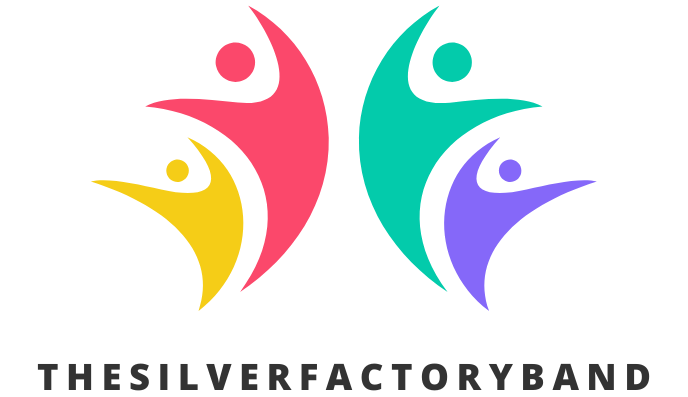Navigating the world of credit can be daunting, especially when faced with financial challenges. Many individuals find themselves overwhelmed by debt or struggling to improve their credit scores. Fortunately, effective credit solution advice can empower them to take control of their financial future and restore their credit health.
Understanding the various options available is crucial for anyone looking to enhance their credit standing. From debt consolidation to credit counseling, the right strategies can make a significant difference. This article explores practical solutions and expert insights that can guide individuals on their journey to better credit management. With the right advice, achieving financial stability is within reach.
Table of Contents
ToggleUnderstanding Credit Solution Advice
Credit solution advice encompasses strategies and recommendations tailored to help individuals manage credit issues effectively. Understanding these solutions can lead to improved credit health and financial stability.
What Is Credit Solution Advice?
Credit solution advice refers to professional recommendations that assist individuals in navigating credit challenges. This guidance typically covers various methods such as debt consolidation, negotiating with creditors, and improving credit scores. Professionals analyze financial situations, evaluate options, and customize action plans. They also educate clients about maintaining healthy credit habits, such as timely payments and responsible borrowing.
Importance of Seeking Professional Guidance
Seeking professional guidance is crucial for addressing credit-related issues effectively. Professionals provide expertise, informed insights, and proven strategies that individuals may lack. They often identify underlying problems that clients might overlook, offering solutions tailored to unique financial circumstances. Engaging with experts can lead to more efficient debt management and significant long-term benefits, such as enhanced credit scores and increased access to financial products.
Types of Credit Solutions

Understanding the various types of credit solutions is essential for effective financial management. Each option offers distinct methods for improving credit health and managing debt.
Debt Consolidation
Debt consolidation combines multiple debts into a single loan or payment, simplifying management. This approach often lowers monthly payments and may reduce interest rates. Common methods of debt consolidation include personal loans, home equity loans, and balance transfer credit cards. Individuals considering this option should ensure they understand the terms and total costs associated with consolidating their debts, as unsecured loans might come with higher interest rates.
Credit Counseling
Credit counseling involves working with certified professionals who provide guidance on budgeting, credit repair, and debt management. Counselors analyze financial situations and develop personalized plans tailored to individual needs. Services often include negotiating with creditors and educating clients about credit scores and financial responsibilities. Participating in a credit counseling program can significantly enhance individuals’ understanding of their financial health and promote sustainable credit practices.
Loan Modification
Loan modification alters the terms of an existing loan to improve repayment conditions. This process can include reducing interest rates, extending payment terms, or recalculating monthly payments. Borrowers may request modifications for mortgages or other secured loans when facing financial hardship. It’s crucial for individuals to communicate directly with lenders and provide necessary documentation, as timely modifications can prevent defaults and support long-term financial stability.
Evaluating Credit Solutions
Evaluating credit solutions requires a thorough understanding of one’s financial health. Knowledge of available options supports informed decision-making and effective debt management.
Assessing Your Financial Situation
Assessing one’s financial situation involves examining income, expenses, debts, and credit scores. Individuals should:
- Gather Financial Documents: Collect pay stubs, bank statements, and bills to understand monthly cash flow.
- Calculate Debt-to-Income Ratio: Divide total monthly debt by gross monthly income to evaluate financial stability.
- Review Credit Reports: Check credit reports for accuracy and identify areas needing improvement.
- Identify Financial Goals: Determine short-term and long-term financial objectives, such as paying off debt or saving for emergencies.
Understanding these factors enables individuals to identify suitable credit solutions that align with their circumstances.
Comparing Different Options
Comparing different credit solutions involves evaluating alternatives based on specific needs and financial situations. Key options include:
- Debt Consolidation Loans: These loans combine multiple debts into one, often resulting in a lower interest rate and a single monthly payment.
- Credit Counseling Services: Certified professionals offer guidance on budgeting and managing debt to improve overall financial health.
- Loan Modifications: Adjusting existing loan terms can lead to more manageable payments and prevent defaults.
- Balance Transfer Credit Cards: These cards allow individuals to transfer high-interest debt to a card with a lower rate, potentially saving money on interest.
Evaluating these options based on interest rates, fees, and terms helps individuals make informed choices about managing their credit effectively.
Benefits of Credit Solution Advice
Credit solution advice offers several benefits that can significantly enhance an individual’s financial health. By accessing professional guidance, individuals can navigate credit challenges more effectively and achieve long-lasting improvements in their credit management.
Improved Credit Score
Improved credit scores often result from utilizing credit solution advice. Professionals assess an individual’s financial situation, identify negative factors affecting credit scores, and recommend strategies for improvement. Actions like making timely payments, reducing credit utilization, and correcting inaccuracies in credit reports lead to higher scores. Such advancements provide access to better loan terms, lower interest rates, and increased opportunities for obtaining credit.
Reduced Financial Stress
Reduced financial stress is a key advantage of credit solution advice. Individuals often feel overwhelmed by debt or low credit scores, which can affect overall well-being. By seeking expert guidance, individuals gain clarity on their financial situation and receive structured plans for debt management. This systematic approach alleviates anxiety related to financial responsibilities and fosters confidence in managing future expenses. By addressing credit challenges head-on, individuals enjoy a more stable financial outlook and improved peace of mind.
Common Misconceptions
Misunderstandings about credit solutions, particularly credit counseling, can hinder individuals from making informed financial decisions. Distinguishing between facts and myths contributes to clearer insights and better credit management.
Myths About Credit Counseling
- Credit counseling eliminates debt. Credit counseling doesn’t erase debt; it provides strategies for managing and repaying it efficiently. Counselors help create repayment plans and budget strategies, but the debt remains until repaid.
- Credit counseling negatively impacts credit scores. Many believe credit counseling harms credit scores. However, when individuals follow a counselor’s advice, they often improve their financial situations, which can positively affect credit scores over time.
- Credit counseling services are all the same. Various credit counseling agencies offer different methods and philosophies. It’s essential to research and select a reputable organization that aligns with individual financial goals.
- You can’t participate in credit counseling if you have good credit. Credit counseling is beneficial for anyone, regardless of credit status. Those with good credit can gain valuable insights for maintaining or improving their financial health.
Clarifying Misinformation
- Debt management plans are mandatory. While debt management plans (DMPs) are common recommendations, they aren’t compulsory. Individuals can choose to follow a DMP or opt for alternative solutions based on their financial situation.
- All credit counselors are certified. Not all credit counselors possess certifications. Individuals should verify credentials and select counselors affiliated with recognized organizations, such as the National Foundation for Credit Counseling (NFCC).
- Credit counseling is free. Some credit counseling services charge fees for their programs. Individuals should inquire about any costs upfront and compare services to identify the most cost-effective solutions.
- Credit counseling guarantees lower interest rates. Credit counseling can facilitate negotiations with creditors, but there’s no guarantee of lower interest rates. Success depends on individual circumstances and the willingness of creditors to cooperate.
Navigating credit challenges can be daunting but with the right strategies and professional guidance, individuals can regain control of their financial health. By understanding various credit solutions and seeking tailored advice, they can improve their credit scores and reduce financial stress.
Taking proactive steps such as debt consolidation and credit counseling can lead to more effective management of debts and better access to financial products. With the right support, individuals can build a stable financial future and achieve peace of mind. Embracing these solutions empowers them to tackle credit issues head-on and fosters confidence in their financial journeys.









